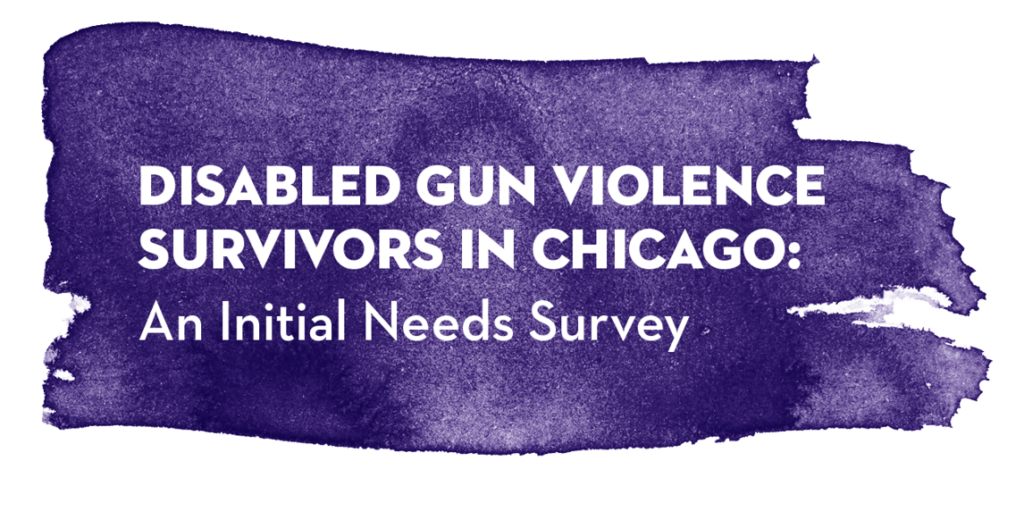
Forward

Shining a Light on the Overlooked Connection Between Gun Violence Survivors and Disability
As a society, we are acutely aware of the devastating impact that gun violence continues to have on individuals, families and communities, both across the nation and in our city of Chicago. Yet too often, we overlook the lasting physical and psychological toll that shootings take on the lives of survivors.
Access Living’s core mission as a Chicago-based Center for Independent Living is to provide the support that people with disabilities need to live self-determined lives of their choosing. These services focus on supporting individual needs for housing, transportation, in-home personal assistance services, disability benefits and community resources. Most of our consumers are disabled people of color, and over our decades of service, we knew that many were impacted by gun violence.
For the past 18 months, Access Living has aimed to better understand how we can best offer supports and services to the many thousands of Chicagoans who have become disabled through gun violence. In 2022 and 2023, we conducted more than 150 individual and group interviews with survivors themselves to hear their firsthand stories. We met with government officials, community-based organizations, violence prevention leaders and staff of hospital trauma centers. This paper includes findings from these conversations and documents some of the common barriers that gun violence survivors with disabilities face — like difficulty attaining adequate health care, accessible and affordable housing and transportation, and educational opportunities leading to meaningful needed employment. Most survivors we spoke to reported encountering stigma, disability and racial discrimination, and social isolation, without the support that was essential to healing and rebuilding their lives.
Thanks to support from the Ford Foundation, we are able to present this online paper: Disabled Gun Violence Survivors in Chicago: An Initial Survey of Needs. The paper examines barriers and provides recommendations through the voices of those with lived experience. Our hope is that it raises awareness and sparks further conversations around needed changes in the availability and quality of services and supports for gun violence survivors with disabilities. In particular, we hope that our fellow disability-led organizations will join us in rising to this challenge.
Access Living believes that our road ahead includes continued work on gun safety and violence prevention. That includes better access to quality health care, and mental health services that truly embrace and support those who have disabilities acquired though shootings.
But we must do better at supporting disabled survivors, especially from communities of color. We know, and our research shows, that such supports are long overdue. This paper and our next identified action steps move us in the direction we need to go, and we’re committed to making a real difference moving forward.

Karen Tamley
President and CEO
Access Living
